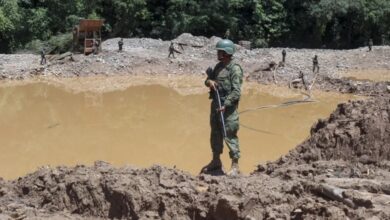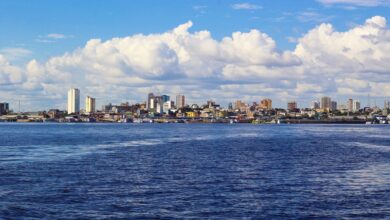How does fireworks affect the holidays?
With Christmas and New Year just around the corner, there are, once again, recommendations to have a "more responsible" celebration .

The fireworks industry is preparing for changes and awareness of society towards its use. / Photo: Pexels
LatinAmerican Post | Ariel Cipolla
Listen to this article
Leer en español: ¿Cómo afecta la pirotecnia durante las fiestas?
Christmas and New Years involve celebrations around the planet . Each country has its customs, but the truth is that there is a tradition that seems to be with us forever: fireworks. Whether on a large scale or through a simple pyrotechnics, historically it was common for this to be the time when they began to be sold in most countries.
However, in recent years different campaigns have begun to circulate to raise awareness of a healthy celebration. For example, fireworks are said to greatly affect children with autism and even pets , so the use has also started to drop dramatically, especially in our region.
This can be seen, for example, in the low number of fireworks injuries after parties. For example, in Argentina, during the current year, the Government highlighted the "lowest number in years " of patients who had to enter the emergency room. The truth is that it is a delicate situation, which affects both humans and animals and the environment.
The fireworks industry and its consequences
The fireworks industry is a huge global business. According to a NY Times report this industry is dominated by Chinese manufacturers, reaching around 12 billion dollars annually . However, the use of this industry can be lethal: in Latin America, for example, hundreds of fires or injuries are registered due to the misuse of fireworks or, simply, misfortunes.
Besides how dangerous it can be for people, it also causes discomfort for animals. Thus, we see that in Argentina a project is advancing to regulate the use of pyrotechnics at the national level, in such a way that it is not prohibited, but that the decibels of the sound are lowered so that it stops being auditory damage.
The same would be sought to apply in Brazil, although on a larger scale: they want to ban all fireworks that produce noise, with a possible prison term of three months to a year for all those who violate it . This is a measure similar to the one that Chile has, since the late 1990s, where the commercialization and use of fireworks is prohibited in the territory.
Also read: Sustainable Christmas gifts
However, what is happening in relation to the environment? Well, from Greenpeace they specify that they have a really negative side: pollution. From the smell we can perceive that there are unnatural aromas, since the pollution generated by a mixture of nitrates, sulfates and perchlorates in sodium formulas can be felt.
Likewise, mixing causes poor visibility and a constant feeling of haze. Since there is a huge amount of smoke in the air, it can also affect humans when inhaled. Even CO2, a gas without color or odor, can generate a sudden discomfort due to poisoning, leading to death .
The rain cycle can also be modified by the effects of fireworks. A study by the Faculty of Geography of the Autonomous University of the State of Mexico revealed that the rockets launched into the air cause a delay in the rain cycle, which results in atmospheric pollution, since the rockets dissipate the downpour and The drops of water with which the cloud is created vanish.
At the same time, as we indicated, it poses a great danger to fauna and flora. Animals perceive sounds much more acutely. While for vegetation it is common that, due to poor handling of rockets or the factor of chance, fires occur in forest areas.
For this reason, the idea that there is a "zero pyrotechnics" will go hand in hand with the awareness of society, but also with the public policies that countries can generate to understand how serious the situation can be. Although, as time goes by, we get used to the number of fireworks being reduced, we can change the traditions to avoid accidents.




